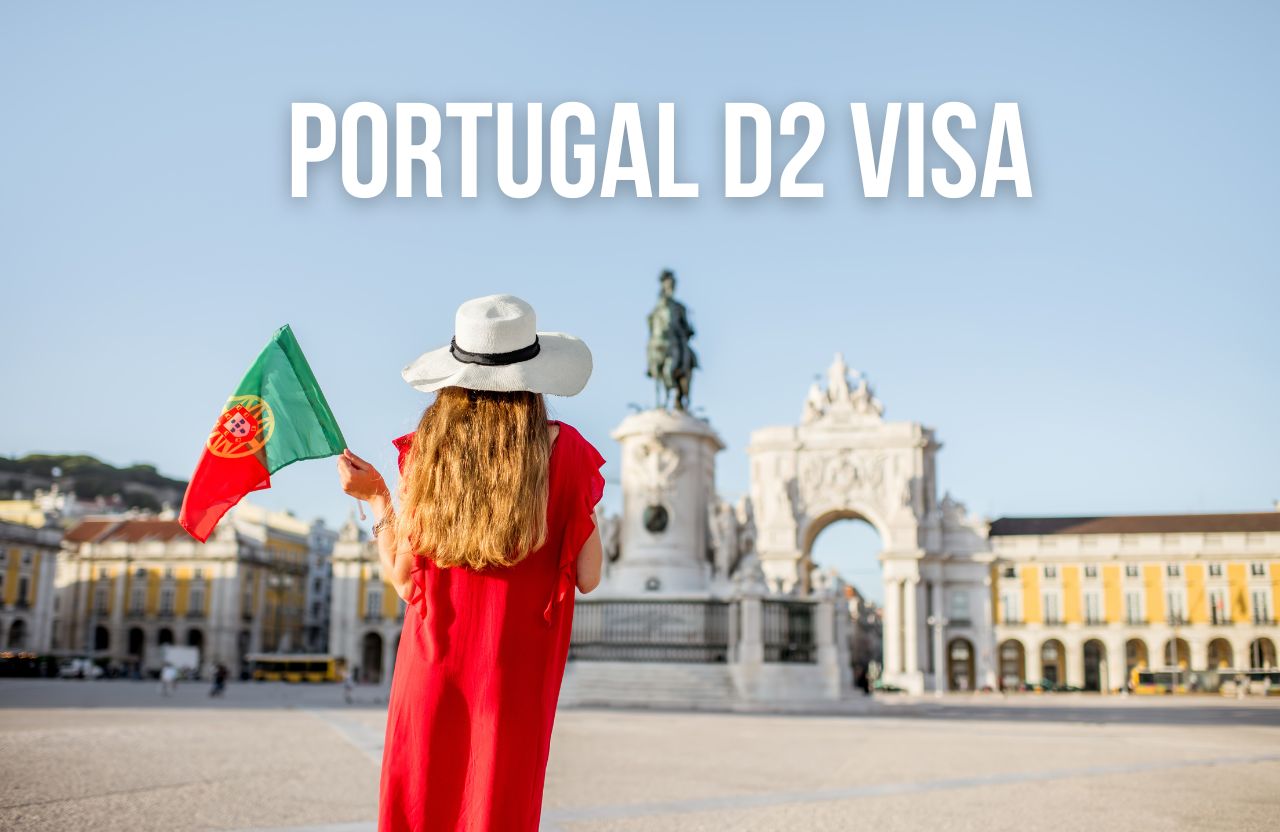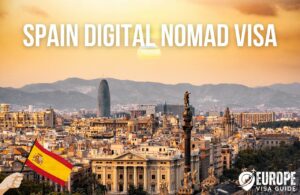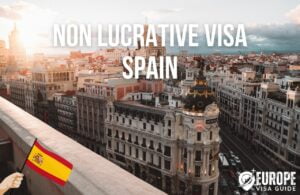
Table of Contents
Are you considering opening a business in Portugal? Look no further than the Portugal D2 Visa, also known as the Entrepreneur Visa. This visa is an excellent option for individuals who want to start a new business, establish a Portuguese branch of an existing business, or run an already established business in Portugal. In this comprehensive guide, we will delve into the details of the Portugal D2 Visa, including its requirements, benefits, application process, and pathway to Portuguese citizenship.
What is the Portugal D2 Visa?
The Portugal D2 Visa is specifically designed for individuals who aspire to open a business in Portugal. Unlike other visa pathways like the Golden Visa or the D7 passive income visa, the D2 Visa does not require a significant financial investment or proof of regular passive income. Instead, the main requirement is to have a viable business idea or an existing business that you can operate in Portugal. Whether it’s a coffee shop, a wellness retreat, or a real estate agency, there are no restrictions on the type of business you can establish.
It’s important to note that the Portugal D2 Visa, like other visa options, is primarily targeted at third-country nationals from outside the EU/EEA or Switzerland. EU citizens can freely move to Portugal without a visa under the EU freedom of movement rights.
Portugal D2 Visa Categories
There are two main categories of the Portugal D2 Visa: the Entrepreneur route and the Independent service provider route. Let’s take a closer look at each category and their respective requirements.
Entrepreneur Route
The Entrepreneur route is suitable for individuals who want to either open a new business or establish a Portuguese branch of an existing business. To qualify for this category, you will need to fulfill the following key requirements:
- Obtain a NIF (tax number in Portugal)
- Open a business bank account at a Portuguese bank
- Set up a Portuguese limited company (LDA)
- Engage an accountant who understands the Portuguese tax system
Additionally, you will need to demonstrate sufficient financial means to establish and operate the company. As a company incorporated in Portugal, you will also be required to pay annual corporation tax and social security contributions.
Independent Service Provider Route
The Independent Service Provider route is a suitable option for individuals who wish to offer services to domestic or international clients. This category has fewer requirements compared to the Entrepreneur route. The key requirements for this category include:
- Obtain a NIF (tax number in Portugal)
- Open a bank account at a Portuguese bank
- Provide proof of relevant experience or qualifications in your field (e.g., academic degree, CV)
- Demonstrate a contract with one or more clients
If you work remotely to deliver services to clients outside Portugal, you may also consider the D7 ‘passive income’ visa, which includes remote work as part of its definition of passive income.
Benefits of the Portugal D2 Visa
The Portugal D2 Visa offers several advantages for individuals looking to start a business in Portugal. Some of these benefits include:
- No need to prove passive income: Unlike the D7 visa, which requires proof of regular passive income, the D2 visa does not have this requirement. This makes it a more accessible option for entrepreneurs.
- No hefty investment needed: Unlike the Golden Visa, which demands a significant financial investment, the D2 visa does not require such a large capital outlay.
- Pathway to citizenship: After maintaining legal residency in Portugal for five years, D2 visa holders can become eligible for Portuguese (and EU) citizenship.
- Flexibility for entrepreneurs and existing business owners: The D2 visa allows entrepreneurs to establish a new business or operate an existing business in Portugal, providing flexibility and opportunities for growth.
How to Obtain the D2 Visa
To obtain the Portugal D2 Visa, your success primarily relies on presenting a solid business plan that is likely to succeed in Portugal. Portuguese authorities want to ensure that your business or service activities will generate sufficient income to support your living expenses in the country. This income can come from either a locally incorporated company (for the Entrepreneur route) or contracts with clients (for the Independent Service Provider route).
When applying, you will also need to demonstrate “proof of means of subsistence.” This typically involves having enough savings in the bank to cover at least 12 months of living expenses, equivalent to the Portuguese minimum wage, which is currently €740 per month. However, it is recommended to demonstrate a minimum of €1,000 per month for one person to ensure a more realistic level of financial stability.
Here is a comprehensive list of Portugal d2 visa requirements for your Portugal D2 Visa application:
- Criminal record check from previous countries of residency: This document should be obtained from any country where you have resided for more than 12 months. It should be no older than three months at the time of submission.
- Proof of accommodation in Portugal: You will need to provide evidence of suitable accommodation in Portugal. This can be in the form of a rental contract, property deeds, or a letter of invitation from a friend or relative who is already a legal resident of Portugal.
- Travel insurance for at least six months: This insurance should cover the initial four months of your Portugal D2 Visa, including the period in which you are waiting to register as a resident with SEF (Serviço de Estrangeiros e Fronteiras). It is advisable to have insurance coverage for at least six months to ensure protection in case of any delays in the residency registration process.
The Portugal D2 Visa Application Process
The D2 visa Portugal application process consists of two stages: the embassy stage and the immigration authority (SEF) stage.
Embassy Stage
During the embassy stage, which takes place at the Portuguese Embassy or Consulate in your home country, you will submit the majority of the required documents, including your business plan. Once your visa application is approved, you will be invited for an interview. If the interview is successful, you will be issued the Portugal D2 Visa, which is valid for four months. This visa allows you to travel to Portugal and apply for residency.
SEF Stage
Upon arrival in Portugal, it is recommended to schedule an appointment with the immigration authorities (SEF) as soon as possible, even if the available appointment dates extend beyond the four-month visa duration. SEF appointments can take time to secure, but as long as you have a scheduled appointment, you will maintain legal status in Portugal even after the initial four-month visa period.
Utilizing the Portugal D2 Visa with NHR
NHR (Non-Habitual Residency) is a special tax status in Portugal primarily designed for individuals with income derived from outside of Portugal. NHR is a tax status rather than an immigration route, so it can be applied for regardless of the residency pathway chosen (such as D2, D7, or Golden Visa). Both EU and non-EU citizens can apply for NHR, provided they are tax residents of Portugal.
NHR offers preferential tax treatment for individuals with income sourced from within Portugal, particularly if their area of work falls under Portugal’s list of high-added-value activities. As a Portugal D2 Visa holder, you may be eligible for NHR benefits depending on the nature of your business activities. Additionally, NHR can provide tax advantages for other forms of income from abroad, such as dividends or investment income. NHR status is valid for 10 years, allowing individuals to benefit from preferential tax treatment even after obtaining Portuguese citizenship.
It’s important to note that to apply for NHR status, you must do so before March 31 of the year after becoming a Portuguese tax resident. This typically occurs when you link your NIF to a Portuguese address. Missing the NHR application deadline can result in the loss of the opportunity to obtain NHR status unless you leave the country for five years and then return.
The Portugal D2 Visa and Portuguese Citizenship
The Portugal D2 Visa serves as a pathway to Portuguese (and EU) citizenship. To become eligible for Portuguese citizenship, you must maintain legal residency in the country for a minimum of five years. During this period, Portugal should be your primary home and country of tax residency, requiring at least six months of physical presence in the country each year (183 days per year). The same rule applies to residents with the D7 visa. However, Golden Visa holders have more flexibility in terms of physical stay requirements, as they only need to spend two weeks per year in Portugal to maintain their immigration status.
Acquiring Portuguese citizenship also requires a basic command of the Portuguese language. Currently, an A2 level of Portuguese proficiency is required, which is lower than the language proficiency requirements of most other EU countries.
Exploring Alternatives: The Portugal Highly Qualified Activity Visa
If you have a business idea for Portugal but require more flexibility than the Portugal D2 Visa allows, you may be interested in the Portugal Highly Qualified Activity (HQA) Visa. The HQA Visa is a hybrid investor-entrepreneur residency pathway that connects entrepreneurial investors with Portuguese universities to develop research-driven startups. To obtain this visa, you will need to make an investment of €175,000. In return, you will enjoy maximum flexibility, as you only need to spend a minimum of seven days per year in Portugal to maintain your residency status. Furthermore, the HQA Visa has a shorter processing timeline of just 30 days compared to the Golden Visa.
Conclusion
In this ultimate guide to the Portugal D2 Visa, we have explored the intricacies of this Entrepreneur Visa for individuals looking to establish or operate a business in Portugal. We have discussed the eligibility requirements, the application process, and the benefits of the D2 Visa. Additionally, we have highlighted the potential pathway to Portuguese citizenship and the option of utilizing the D2 Visa alongside the NHR tax status. For those seeking even greater flexibility, we have introduced the Portugal Highly Qualified Activity Visa as an alternative residency pathway. The Portugal D2 Visa opens doors to business opportunities and paves the way for a promising future in Portugal.





